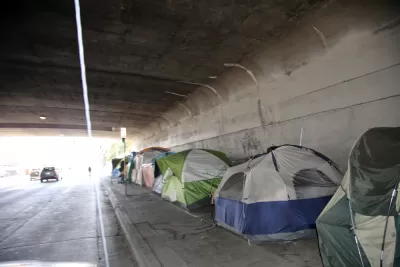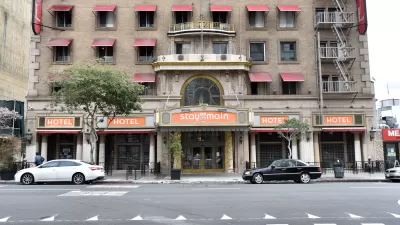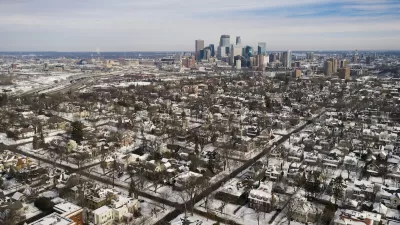The Department of Housing and Urban Development announced a $365 million package aimed at efforts to reduce homelessness and provide outreach and care for people lacking adequate housing.

The federal government hopes to ease the nationwide homelessness crisis with a new package of funding announced by the Department of Housing and Urban Development (HUD). According to an article by Sarah Holder in Bloomberg CityLab, the package “includes $43 million worth of housing choice vouchers, which provide recipients with permanent subsidized housing, and $322 million in Continuum of Care homelessness grants.”
And it’s not a coincidence that this week’s funding announcement comes at a time when some statehouses are advancing legislation that would ban camping in public right-of-ways, and law enforcement officers in places like Los Angeles and New York have doubled down on conducting sweeps of encampments — a sometimes violent practice that advocates warn does little to get people off the streets long term and can lead to harmful cycles between jail and the streets.
In a statement, HUD Secretary Marcia Fudge said “Solving unsheltered homelessness means delivering help to the people who need it the most, but who have the hardest time reaching it. It means putting housing first and health care and other supportive services right after.” Fudge said the funding should create the resources for local agencies to “scale up coordinated efforts to humanely and effectively move people from encampments into homes by linking homeless outreach with health care, treatment and housing.”
The model known as Housing First, which promotes placing people into housing without prerequisites, has helped cities like Houston and Denver drastically reduce the number of people living without shelter.
FULL STORY: White House Hopes New Funding Will Deter Clearing Homeless Encampments

Trump Administration Could Effectively End Housing Voucher Program
Federal officials are eyeing major cuts to the Section 8 program that helps millions of low-income households pay rent.

Planetizen Federal Action Tracker
A weekly monitor of how Trump’s orders and actions are impacting planners and planning in America.

Ken Jennings Launches Transit Web Series
The Jeopardy champ wants you to ride public transit.

New Mexico Aging Department Commits to Helping Seniors Age ‘In Place’ and ‘Autonomously’ in New Draft Plan
As New Mexico’s population of seniors continues to grow, the state’s aging department is proposing expanded initiatives to help seniors maintain their autonomy while also supporting family caregivers.

USDOT Waters Down Self-Driving Car Regulations
The agency is reducing reporting requirements for autonomous vehicles and cars with self-driving features, prompting concern among safety advocates who say transparency is essential to the safe deployment of AV technology.

‘Minnesota Nice’ Isn’t so Nice When You Can’t Find a Place to Live
The Economic Development and Housing Challenge Program can help address the scourge of homelessness among Indigenous people.
Urban Design for Planners 1: Software Tools
This six-course series explores essential urban design concepts using open source software and equips planners with the tools they need to participate fully in the urban design process.
Planning for Universal Design
Learn the tools for implementing Universal Design in planning regulations.
Heyer Gruel & Associates PA
Ada County Highway District
Institute for Housing and Urban Development Studies (IHS)
City of Grandview
Harvard GSD Executive Education
Toledo-Lucas County Plan Commissions
Salt Lake City
NYU Wagner Graduate School of Public Service





























